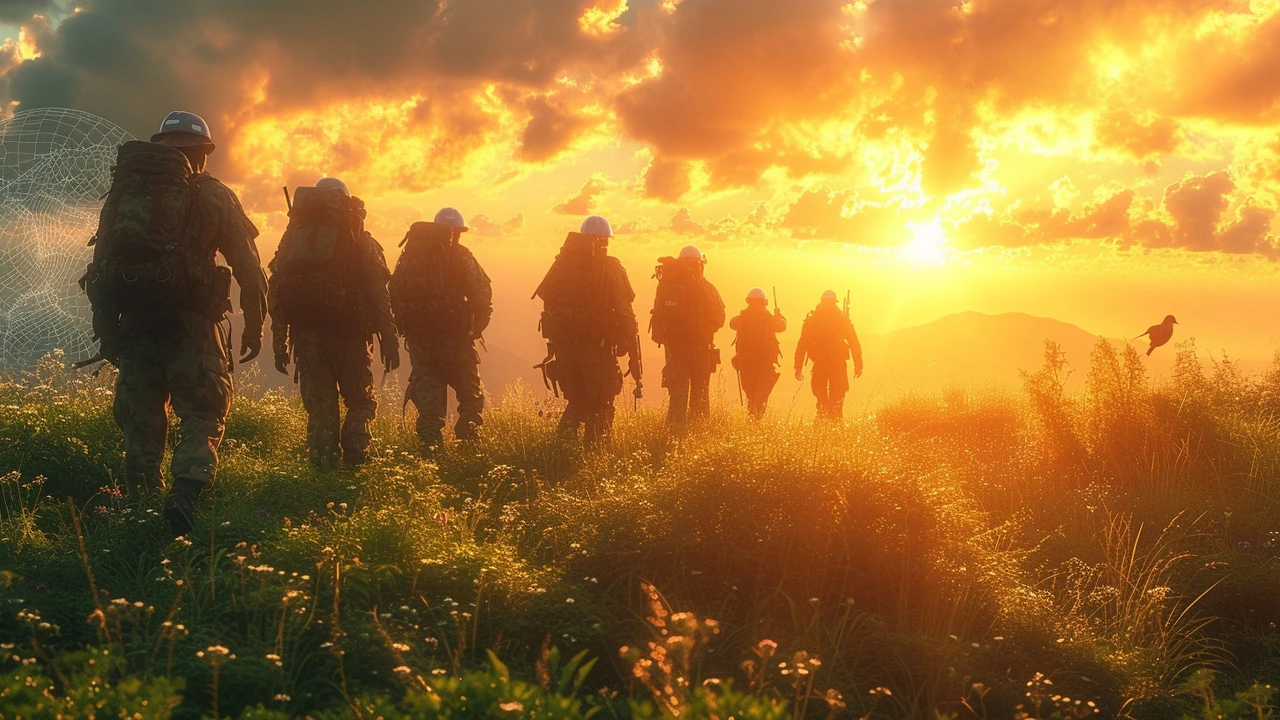They rarely make headlines, but peacekeepers step into danger every day to protect civilians, hold fragile truces, and help towns stand up again. You already know the uniforms and blue helmets, but you might not know how messy, brave, and human this work really is.
This tag page gathers stories and analysis about those quiet efforts. You will find first-person pieces about patrols and checkpoints, deep reads on mission strategy, and practical guides on how peace operations support community rebuilding. Each post shows a different side: the front-line soldier calming a crowd, the medic treating kids, the civil officer helping elections, or the academic tracing policy shifts that shape missions.
Why care? Because peacekeeping affects real lives. In places where basic services collapse, a steady patrol can let markets reopen and schools run. When local leaders see impartial forces enforcing peace, distrust eases and talks can happen. That is the bravery we mean: small daily acts that add up to safety.
What makes peacekeeping hard? Missions work inside politics, limited resources, and shifting threats. Rules of engagement can stop soldiers from acting until violence happens. Logistics will fail in remote areas. And trust takes time to build with communities worn down by conflict. Published analyses on this tag explain these barriers clearly and show how teams adapt tactics, use local knowledge, and employ technology like drones and secure communication to close gaps.
You've probably read pieces on the history and strategy of peacekeeping here, and you can also find human stories that stick with you. A medic's account of treating injuries after a market attack shows courage mixed with compassion. A community development post explains how small cash-for-work projects rebuilt a town center and saved livelihoods. Those practical recovery steps are as brave as frontline actions.
If you want to learn fast, start with short first-person posts to feel the reality, then read the long-reads for context. Look for articles that explain what peacekeepers actually do day-to-day, not just the mission briefings. Pay attention to pieces that cover protection of civilians, election support, and human rights work — they reveal where impact is measurable.
Want to help or follow along? Share stories to lift up quiet heroes. Subscribe to get updates when new reports come out. And when you read an analysis or historical piece, ask: what can local and international actors do differently next time?
Read the posts under this tag to connect names to actions and policy to people. These are not abstract missions — they are messy, human efforts where bravery looks like patience, skill, and steady commitment.
Real examples here include field reports, strategy breakdowns, and policy pieces. You can read a personal patrol account that shows daily risk and local trust-building. Read long analyses that explain how politics and funding shape mission rules. Even academic work like Denis Stairs' studies on defence and foreign policy helps explain why some nations contribute troops and others do not. Together, these pieces give a fuller picture of courage and choice.

Hey there, it's your gal on the ground, diving deep into the world of those brave souls in the shadows of global conflict. I've had the honor to connect with some of the most heroic yet overlooked peacekeepers, and their stories are nothing short of awe-inspiring. You'll be gripped by tales of selfless acts under fire, the quiet strength in the face of chaos, and amazing displays of humanity that these individuals show every day. I promise, by the end of this, you won't look at peacekeeping the same way again. Join me as I shed light on the incredible narratives of those who dedicate their lives to forging peace.
